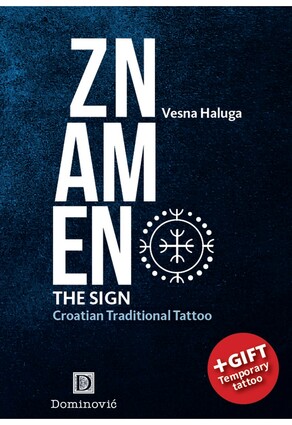
Znamen - the Sign
| Web cijena: | 11,90 € |
This book presents the unique phenomenon of traditional tattooing of Croatian Catholic women in Bosnia and Herzegovina, especially in central Bosnia, where it is a globally unique and ethnological rarity. The traditional tattooing of Catholic women had the greatest significance during the Ottoman rule between 1463 and 1878, when tattooing the cross on a woman’s hands as a symbol of Christianity had a primarily protective function (as protection against being taken into slavery, harem, rape). That small mark on the skin was so important then that it determined people’s destinies. The custom of tattooing the hands of Catholic women remained even after the retreat of the Ottomans, and by then the anthropological, protective meaning had already taken on a ritual-customary quality, become a sign of the identity of women from Bosnia and Herzegovina, mostly around Rama, so women continued to be tattooed. The custom was popular until the end of the 1960s, and has since been slowly dying out. The inclusion of the Croatian traditional tattoo on the UNESCO list of intangible cultural heritage of humanity would be a great contribution to the preservation, popularisation and recognition of this rare ethnological specificity.






